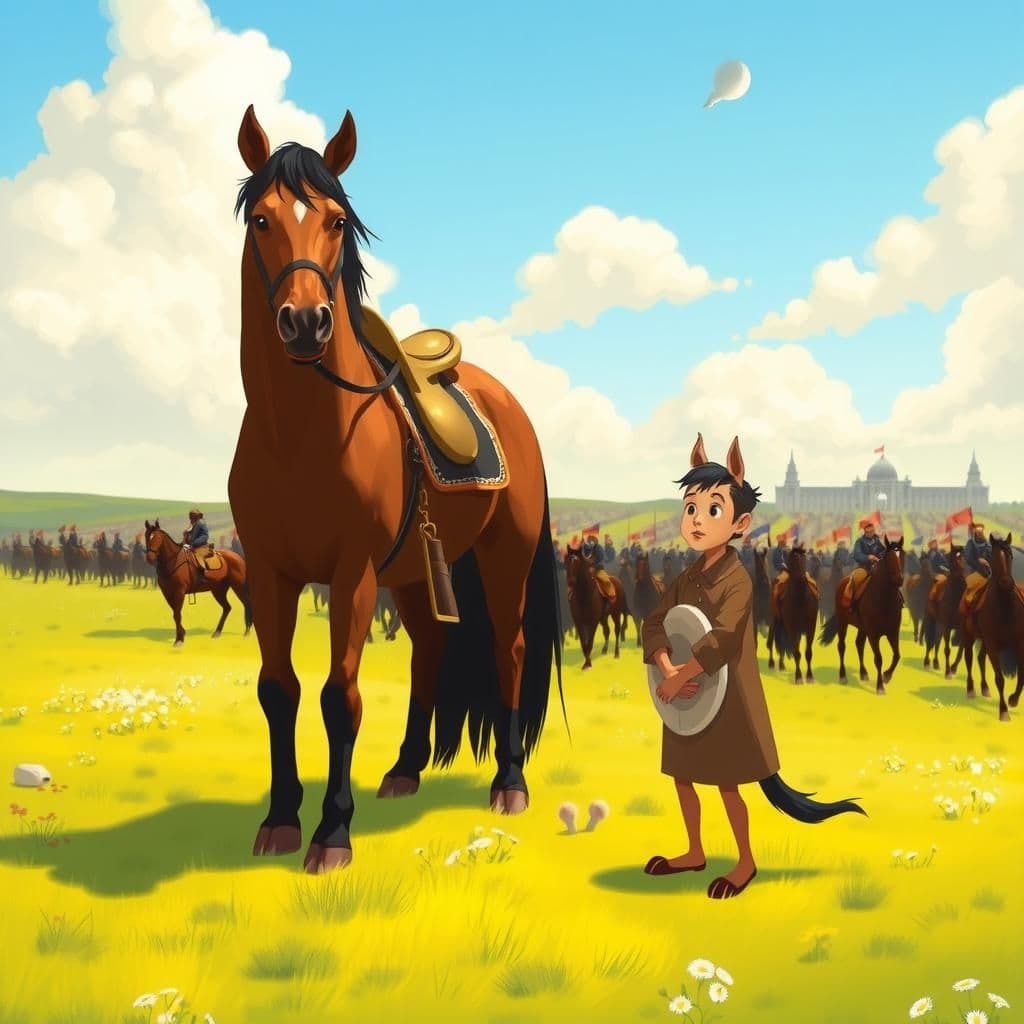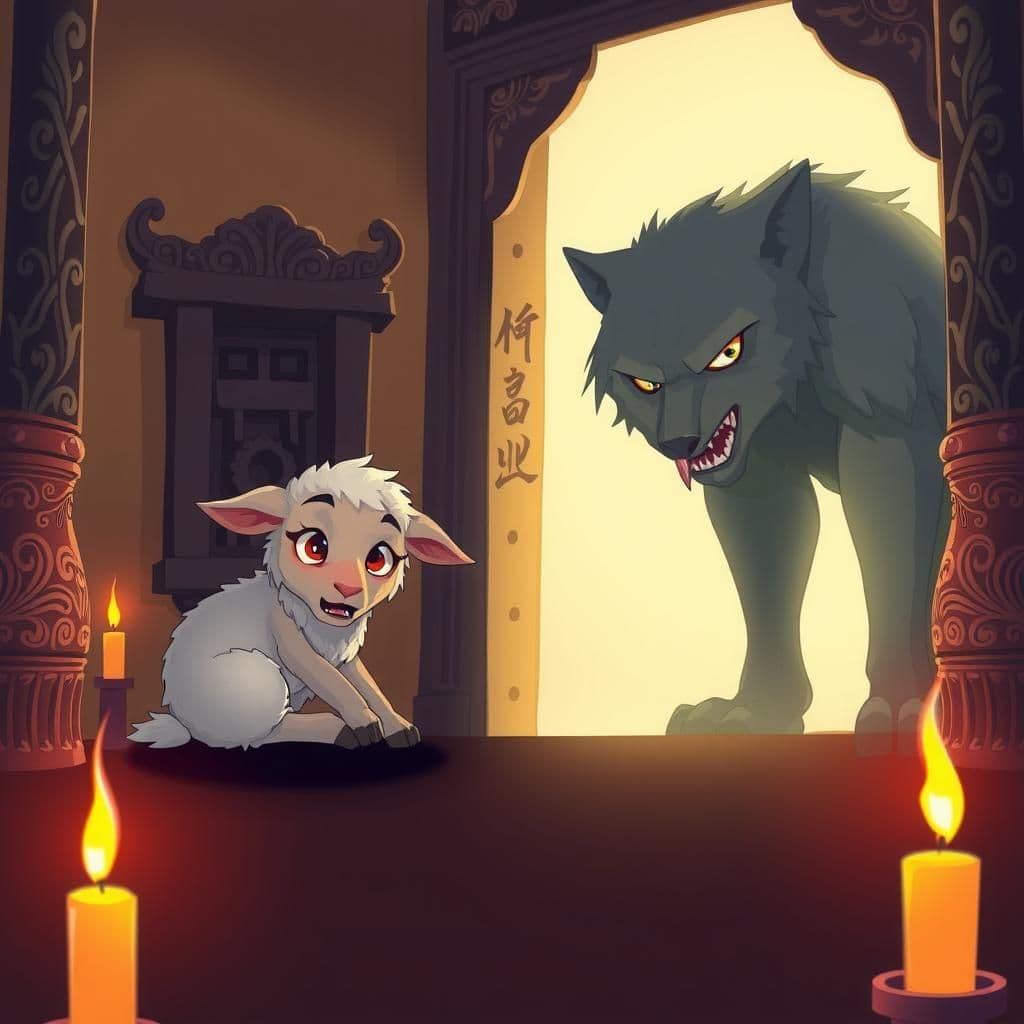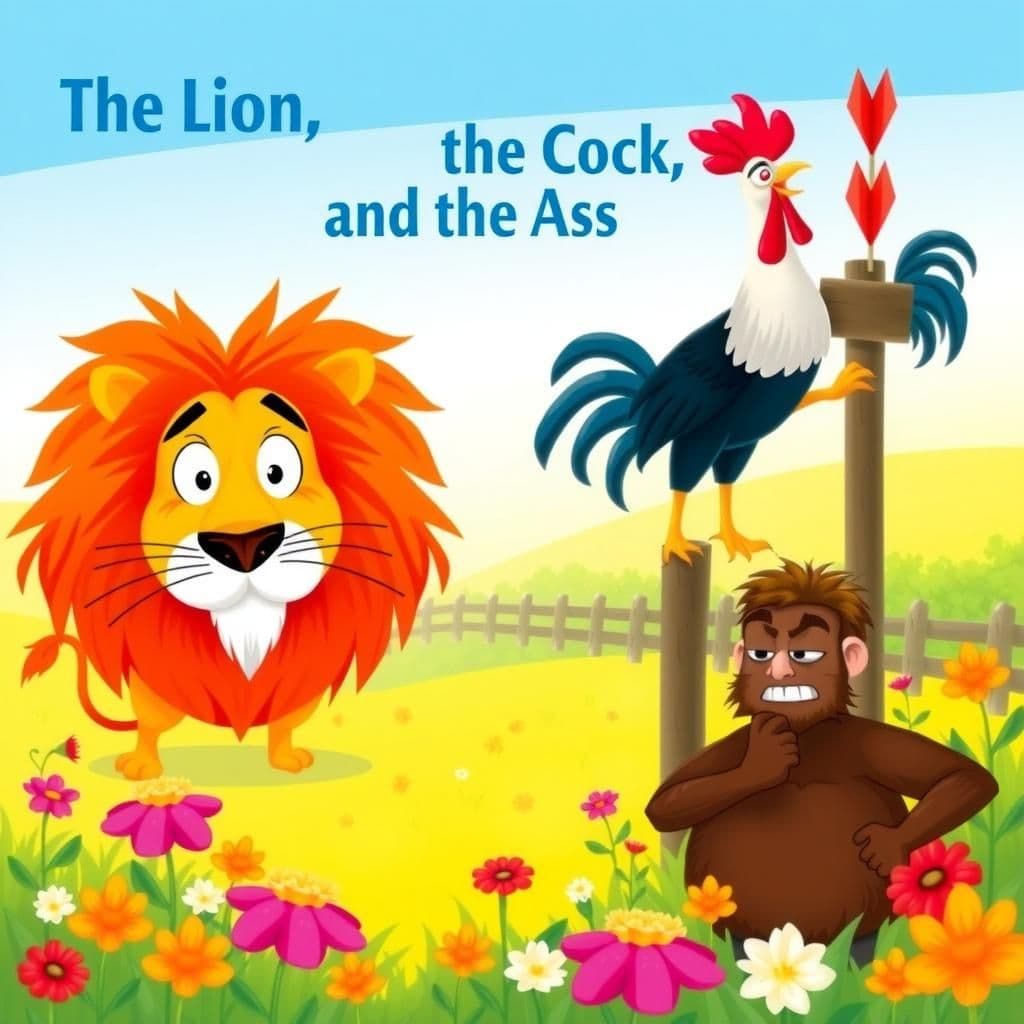The Ass and the Charger

Story Summary
In "The Ass and the Charger," a seemingly privileged Horse is envied by an Ass, who believes the Horse's life is easy and carefree. However, when the Horse is killed in battle while serving a soldier, the Ass learns a valuable lesson about the burdens hidden beneath a luxurious facade, illustrating the timeless moral stories that reveal the complexities of life. This engaging moral tale serves as a reminder that even those who appear to be well-cared-for face significant sacrifices, making it an ideal bedtime moral story for reflection.
Click to reveal the moral of the story
Appearances can be deceiving; what seems enviable may come with hidden burdens and dangers.
Historical Context
This fable, attributed to Aesop, reflects themes of envy, gratitude, and the consequences of one's circumstances. Originating from ancient Greece, Aesop’s fables were often used to impart moral lessons through anthropomorphized animals, with this particular story illustrating the idea that outward appearances of fortune can mask underlying dangers. Retellings of such fables have persisted through centuries, adapting to various cultures while preserving their core messages about wisdom and humility.
Our Editors Opinion
This fable highlights the idea that a seemingly easier life can come with hidden dangers and responsibilities that aren't immediately visible. In modern life, this can be reflected in the scenario of a corporate worker who seems to have a cushy desk job with good pay and benefits, while a small business owner struggles to keep their venture afloat. However, when the corporate worker faces unexpected layoffs during an economic downturn, they may find themselves in a precarious situation, realizing that their perceived security was more fragile than it appeared.
You May Also Like

The Grasshopper and the Ant
In the thought-provoking moral story "The Grasshopper and the Ant," a hungry Grasshopper seeks food from an Ant during winter, lamenting that his supplies were taken by the Ants. The Ant questions why the Grasshopper did not prepare for the cold instead of spending the summer singing. This short tale with a moral highlights the lessons learned from stories about the importance of preparation and hard work.

The Lamb and the Wolf
In the simple short story "The Lamb and the Wolf," a Wolf chases a Lamb that finds refuge in a Temple. When the Wolf warns the Lamb that he would be sacrificed by the Priest, the Lamb wisely replies that being sacrificed is preferable to being eaten by the Wolf. This quick moral story highlights the theme of choosing a less harmful fate over a more dangerous one, making it a meaningful story with moral lessons suitable for class 7.

The Lion, the Cock, and the Ass
In "The Lion, the Cock, and the Ass," a Lion is startled away from attacking an Ass by the proud crowing of a Cock, who claims his voice instills fear in the mighty beast. The Ass, however, humorously questions the Lion's peculiar fear of the Cock while disregarding the braying of the Ass, highlighting the thought-provoking moral that true strength lies not in appearances but in the wisdom to discern simple lessons from stories. This timeless tale serves as one of many moral stories for kids, encouraging them to reflect on the nature of fear and bravado.
Related Collections
Other names for this story
"War Lessons: The Ass and the Charger", "The Price of Valor", "From Envy to Empathy", "The Truth Behind the Charge", "The Ass's Change of Heart", "Battleground Realities", "When Pride Meets Pain", "Lessons from the Battlefield"
Did You Know?
This fable illustrates the theme of envy and the hidden costs of seemingly enviable circumstances; while the Ass initially envies the Horse's comfortable life, he learns that privilege can come with significant risks and sacrifices, ultimately leading to a deeper understanding of compassion and empathy.
Subscribe to Daily Stories
Get a new moral story in your inbox every day.